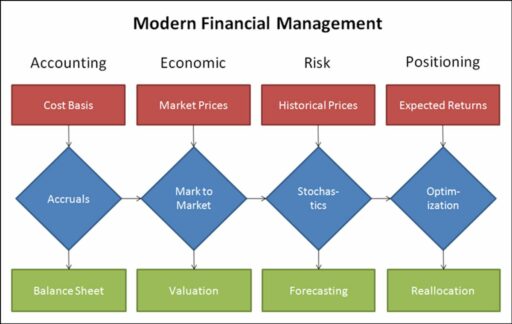When it comes to buying a car, one of the most significant decisions you’ll face is how to finance your purchase. The dilemma of choosing between bank financing and dealership financing is a common one, with each option offering distinct advantages and challenges. Understanding the differences, the impact of your credit score, and the potential benefits of building a relationship with your dealership are crucial in making an informed decision. This article will explore the nuances of both financing routes, provide insights into navigating the financing process, discuss alternatives, and offer tips on how to maximize your savings when financing a car.
Key Takeaways
- Bank financing can offer lower interest rates and bargaining power, but requires a good credit score and may involve a more complex process.
- Dealership financing can be more convenient and efficient, may provide flexible options, and can foster beneficial long-term relationships.
- Understanding the impact of credit scores, negotiating to avoid hidden fees, and reading the fine print are essential to securing a favorable car loan.
- Alternatives like leasing, refinancing, or payment assistance can be suitable for different financial situations and should be carefully considered.
- To ensure the best financing deal, improve your credit score beforehand, shop around for competitive loan rates, and negotiate with dealerships.
Understanding Financing Options: Bank vs. Dealership


Pros and Cons of Bank Financing
When considering bank financing for a car purchase, it’s important to weigh the advantages and disadvantages. Banks often offer competitive interest rates, especially for customers with strong credit histories. They also provide the security of a fixed-rate loan, ensuring consistent monthly payments throughout the term of the loan.
However, bank financing is not without its drawbacks. Higher credit score requirements can make it difficult for some buyers to qualify. Additionally, the loan application process can be more time-consuming compared to dealership financing, potentially delaying the purchase.
While bank loans may offer lower rates, they often come with stricter eligibility criteria and less flexibility in terms of loan usage.
Here’s a quick overview of the pros and cons:
- Pros:
- Competitive interest rates
- Fixed-rate loans for predictable payments
- No collateral required for unsecured loans
- Cons:
- Higher APRs for personal loans
- Origination fees may apply
- Stringent credit requirements
Pros and Cons of Dealership Financing
Financing through a dealership offers a blend of convenience and potential perks. Dealerships often provide a streamlined process, allowing customers to select a vehicle and arrange financing in one location. This can save time and reduce the complexity of the car-buying experience.
However, dealership financing may come with certain drawbacks. It’s not uncommon for dealership loans to carry a higher interest rate compared to personal loans or bank financing. Additionally, customers should be vigilant about add-ons and the fine print in their contracts, as these can lead to unexpected costs.
Dealerships value repeat customers and may offer loyalty discounts or perks to those who finance through them, enhancing the long-term benefits of this option.
Here’s a quick list of points to consider when opting for dealership financing:
- Simplified buying process with on-site financing
- Potential for loyalty discounts and future service perks
- Higher interest rates compared to some bank loans
- Need to be cautious of add-ons and hidden fees
Impact of Credit Score on Financing Choices
Your credit score is a pivotal factor in determining the financing options available to you when purchasing a vehicle. A higher credit score can unlock lower interest rates and more favorable terms, potentially saving you a significant amount of money over the life of your loan. Conversely, a lower score may lead to higher interest rates and limited loan options.
- Higher Credit Score: Access to lower interest rates and better loan terms.
- Lower Credit Score: Higher interest rates and fewer financing choices.
It’s crucial to check your credit score and understand its impact before you decide to finance a car. This knowledge can also provide you with the leverage to negotiate better terms, whether you choose to finance through a bank or a dealership.
By taking steps to improve your credit score before you shop for a car, you can enhance your financing options and reduce the overall cost of your purchase.
The Benefits of Building a Relationship with Your Dealership
Future Purchase and Trade-in Advantages
Building a strong relationship with your dealership can lead to significant benefits when it’s time to purchase your next vehicle or trade in your current one. Dealerships value repeat customers and may offer incentives to encourage your return. These incentives can include better trade-in values, discounts on future purchases, or even more favorable financing terms.
- Better Trade-in Values: A dealership that knows you and your vehicle’s history may offer a higher trade-in value, recognizing the care you’ve put into maintaining the car.
- Discounts on Future Purchases: Loyalty can pay off in the form of discounts on your next car purchase, making it more affordable to upgrade.
- Favorable Financing Terms: Returning customers might be offered lower interest rates or more flexible loan terms on subsequent financing deals.
When considering the long-term relationship with a dealership, think beyond the initial purchase. The rapport you build can translate into tangible benefits over time, enhancing the overall value of your investments in your vehicles.
Service and Maintenance Perks
Choosing to finance your car through a dealership can unlock a variety of service and maintenance perks that enhance your ownership experience. Dealerships often provide exclusive offers on routine services such as oil changes, tire rotations, and inspections, which can lead to substantial savings over time. These offers are particularly attractive for Certified Pre-Owned (CPO) vehicles, which may include complimentary maintenance packages.
- Roadside assistance is frequently included, offering peace of mind during unexpected situations.
- Extended warranty options are available, covering major repairs and reducing potential out-of-pocket expenses.
- Dealerships use genuine manufacturer parts for necessary repairs, ensuring quality and compatibility.
When considering dealership financing, it’s important to factor in these service benefits, as they can significantly contribute to the overall value of your financing package. While dealerships may have a reputation for higher hourly repair rates, the convenience and quality of service can outweigh the costs for many drivers.
Loyalty Discounts and Community Involvement
Building a strong relationship with your dealership can lead to exclusive loyalty discounts that reward you for your continued patronage. These discounts can apply to future vehicle purchases, parts, and services, making each transaction more cost-effective over time.
Dealerships often play a significant role in local communities, providing support through sponsorships, charity events, and other initiatives. By financing through your dealership, you’re not just getting a car; you’re also contributing to the welfare of your community.
Here are some additional benefits of dealership loyalty:
- Access to special events and promotions
- Priority service appointments
- Personalized customer care
Remember, the benefits of dealership loyalty extend beyond the immediate perks. They foster a sense of community and can lead to long-term savings and a more personalized buying experience.
Navigating the Financing Process: What to Watch Out For


Hidden Fees and Add-Ons
When financing a car, it’s crucial to be aware of hidden fees and add-ons that can inflate the total cost of your vehicle. These fees can sneak into your contract and may not be immediately apparent when you’re focused on the monthly payment. For instance, additions like an extended warranty and undercoating might seem minor, but they can significantly increase the overall price, especially since they’re often rolled into the financing, accruing additional interest over time.
It’s essential to consider the total cost of the vehicle, not just the monthly payments. Dealerships may emphasize affordable payments while downplaying the full price, which includes various fees and add-ons.
Understanding the common fees can help you negotiate and avoid overpaying. Here’s a list of dealer fees to watch out for:
- Documentation fees
- Destination charges
- Dealer preparation fees
- Advertising fees
- Vehicle identification number etching
Always review the itemized charges and question any fee that doesn’t make sense or seems excessive. Remember, everything is negotiable, and being informed is your best defense against unnecessary expenses.
Interest Rates and Loan Terms
When financing a car, the interest rates and loan terms offered can significantly affect your overall costs. Interest rates can vary widely, from as low as 7.99% to as high as 35.99%, depending on the lender and your creditworthiness. It’s crucial to understand how these rates translate into monthly payments and the total amount paid over the life of the loan.
The term length of your loan also impacts your financial commitment. A longer loan term means smaller monthly payments but results in more interest paid over time. Conversely, a shorter loan term leads to higher monthly payments, but you’ll save on interest. Here’s a quick comparison:
| Loan Term | Monthly Payment | Total Interest Paid |
|---|---|---|
| Short | Higher | Lower |
| Long | Lower | Higher |
Choosing the right loan terms involves balancing monthly affordability with overall interest costs. It’s a personal decision that should align with your financial goals and budget.
Remember, the loan terms you’re offered can be influenced by various factors, including your credit score and the lender’s policies. Some lenders may offer better terms for certain types of loans or to customers with excellent credit. Always review the loan agreement carefully to ensure you understand all the terms and conditions before signing.
The Fine Print: Understanding Your Contract
When finalizing your car financing, the contract’s fine print can significantly impact your financial obligations. Ensure you understand all terms and conditions before signing. Key elements to scrutinize include the interest rate, payment schedule, and any penalties for early repayment or default.
- Interest Rate: The percentage of the loan charged as interest.
- Payment Schedule: How often and when payments must be made.
- Penalties: Fees for early repayment or default.
Before committing, ask about:
- Upfront fees and their amounts.
- Restrictions on vehicle use, especially for leases.
- Charges for excess wear and tear.
- The residual value after the lease, if applicable.
Remember, optional add-ons like extended warranties can be negotiated. Weigh the costs against the benefits to make an informed decision.
Always take the time to review each clause carefully. If certain terms are unclear, don’t hesitate to seek clarification from the financier or a legal professional. Your diligence now can prevent costly surprises in the future.
Alternatives to Traditional Financing
Leasing vs. Buying: Which is Right for You?
Deciding between leasing and buying a vehicle hinges on your long-term automotive goals and financial situation. Leasing may offer lower monthly payments with minimal upfront costs, making it an attractive option for those who desire a new car every few years without the commitment of ownership. However, it often comes with mileage restrictions and may not allow for customization.
On the other hand, buying a car is more suitable for those who prefer to own their vehicle for an extended period, potentially benefiting from lower taxes, licensing, and insurance costs in the long run. While the monthly payments might be higher, there’s no mileage limit, and you have the freedom to customize your vehicle.
When considering leasing or buying, reflect on factors such as how often you’d like to change cars, your annual mileage, and whether you’re willing to trade lower payments for potential penalties or restrictions.
Here’s a quick comparison to help you weigh your options:
| Leasing a Car | Buying a Car |
|---|---|
| Lower monthly payments, often no down payment | Higher monthly payments, down payment likely |
| Customization restrictions | Freedom to customize |
| Mileage penalties | Unlimited mileage |
| Maintenance often included | Maintenance costs are your responsibility |
Refinancing Your Auto Loan
Refinancing your auto loan can be a strategic move if you’re looking to lower your monthly payments or reduce the overall interest paid over the life of the loan. By securing a lower interest rate or extending the loan term, you can potentially save money. However, it’s important to consider the trade-offs, such as the possibility of paying more in total interest with a longer loan term.
- Pros of Refinancing: Lower monthly payments, potential for lower interest rates, ability to adjust loan terms.
- Cons of Refinancing: May incur upfront fees, total interest paid could increase, and the loan’s lifespan may extend.
When considering refinancing, it’s crucial to evaluate your current financial situation and the terms of your new loan to ensure it aligns with your financial goals.
Refinancing isn’t a one-size-fits-all solution. It’s advisable to compare offers from multiple lenders to find the best rates and terms for your situation. Use online tools like auto loan calculators to estimate your potential savings and decide if refinancing is the right choice for you.
Payment Assistance Options During Financial Hardship
During times of financial strain, it’s crucial to explore all available options to manage your auto loan payments effectively. Discussing hardship assistance options with your lender can provide temporary relief. These programs may include payment deferral, forbearance, or loan modification, allowing you to navigate through tough periods without defaulting on your loan.
Refinancing your car loan is another viable strategy. By securing a new loan with more favorable terms, you can reduce your monthly payments or interest rates, ultimately easing the financial burden. However, be mindful of potential upfront fees and the fact that the total loan amount remains unchanged.
It’s important to act promptly and communicate with your lender or dealer about any financial difficulties. Proactive measures can prevent more severe consequences like repossession or credit score damage.
Remember, not all lenders offer the same assistance programs, and qualification criteria can vary. Below is a list of steps to consider when seeking payment assistance:
- Inquire about your lender’s specific hardship programs.
- Assess the pros and cons of refinancing your auto loan.
- Calculate any fees associated with refinancing to ensure it’s cost-effective.
- Explore personal loan offers that could consolidate debt at a lower interest rate.
Maximizing Your Savings: Tips for Smart Financing


Improving Your Credit Score Before Purchase
Improving your credit score is a strategic move that can lead to better loan terms and lower interest rates when financing a car. Checking your credit history before applying for a loan is crucial; it allows you to identify and rectify any errors that might affect your score. Additionally, paying down existing debt can significantly reduce your credit utilization, which is a key factor in credit scoring.
By taking steps to enhance your credit profile, you not only increase your chances of loan approval but also position yourself to negotiate more favorable financing terms.
Here are some practical steps to improve your credit score:
- Pay down some debt to lower credit utilization.
- Dispute any inaccuracies on your credit report.
- Consider adding recurring bills to your credit report through services like Experian Boost or eCredable, which can reflect on-time payments and potentially raise your score.
Remember, a better credit score can translate into significant savings over the life of your car loan. As Kalinowski suggests, borrowing from your bank may offer additional leverage in negotiations, and as Macmillan notes, a higher credit score typically means a better interest rate.
Shopping Around for the Best Loan Rates
When it comes to financing your car, shopping around for the best loan rates is crucial. Different lenders offer varying interest rates and terms, which can significantly affect your monthly payments and the overall cost of your loan. Start by getting prequalified with multiple lenders, which typically doesn’t affect your credit score. This will give you a clearer picture of what rates you might expect.
- Determine your budget and how much you can afford to borrow.
- Gather necessary documentation, such as proof of income and employment.
- Compare rates from banks, credit unions, and online lenders.
Remember, the lowest interest rate doesn’t always mean the best deal. Consider the total loan cost, including fees and the length of the loan term.
Finally, don’t hesitate to negotiate. Lenders may be willing to match or beat rates offered by competitors, so use the offers you’ve received as leverage to secure the best possible deal for your auto loan.
Negotiating with Dealerships for Better Deals
Negotiating the price of a car at a dealership can be a daunting task, but with the right approach, it can lead to significant savings. Being pre-approved for a loan from your bank can give you leverage during negotiations, as dealers will recognize your readiness to purchase and may offer more competitive pricing to close the deal.
- Know Your Numbers: Understand the market value of the car and your pre-approved loan amount.
- Express Willingness to Walk Away: Show that you are not desperate and are willing to explore other options.
- Ask for Extras: Request for add-ons like extended warranties or maintenance packages at a reduced rate or for free.
Remember, the goal is not just to reduce the sticker price, but also to minimize overall costs, including interest rates and fees. By being informed and assertive, you can steer the negotiation in your favor and drive away with a deal that benefits your wallet in the long term.
Conclusion
Deciding whether to finance a car through a bank or a dealership is a significant choice that depends on individual circumstances and preferences. Banks may offer lower interest rates and give buyers additional bargaining power, especially for those with good credit scores. On the other hand, dealerships provide the convenience of one-stop shopping, potential loyalty benefits, and sometimes exclusive deals or incentives. It’s essential to consider the long-term financial implications, the flexibility of financing options, and the relationship you might build with the dealer for future needs. Regardless of the path chosen, it’s crucial to read the fine print, understand all fees, and shop around to ensure you’re getting the best possible deal on your vehicle financing.
Frequently Asked Questions
What are the benefits of financing a car through a bank?
Financing through a bank can offer you competitive interest rates, especially if you have a good credit score. It also provides bargaining power at the dealership and can potentially save you hundreds to thousands of dollars.
What advantages does dealership financing provide?
Dealership financing can be more convenient and efficient, allowing you to select a car and get financing in one place. Dealerships may offer flexible financing options, loyalty discounts, and exclusive deals to repeat customers.
How does my credit score affect my car financing options?
A better credit score typically means a better interest rate, whether financing through a bank or dealership. Improving your credit score before purchasing a car can save you money on interest over the life of the loan.
Are there any perks to building a relationship with a dealership?
Yes, financing through a dealership can lead to future purchase and trade-in advantages, service and maintenance perks, and loyalty discounts, as dealerships value repeat business and community involvement.
What should I watch out for when navigating the financing process?
Be cautious of hidden fees, add-ons that can be rolled into financing, and prepayment penalties. Always read the fine print and understand your contract fully to avoid paying more than necessary.
What are some alternatives to traditional car financing?
Alternatives include leasing, which may offer lower monthly payments, refinancing your auto loan for better terms, or exploring payment assistance options during financial hardship.




![How to Strategically Manage Your Personal Finances Like a Mar [[MANAGE YOUR PERSONAL FINANCES LIKE A BUSINESS ] to make it a uniform lengthi 11 c50b2697thumbnail](https://financemeaning.com/wp-content/uploads/2024/04/c50b2697thumbnail-512x341.jpeg)
